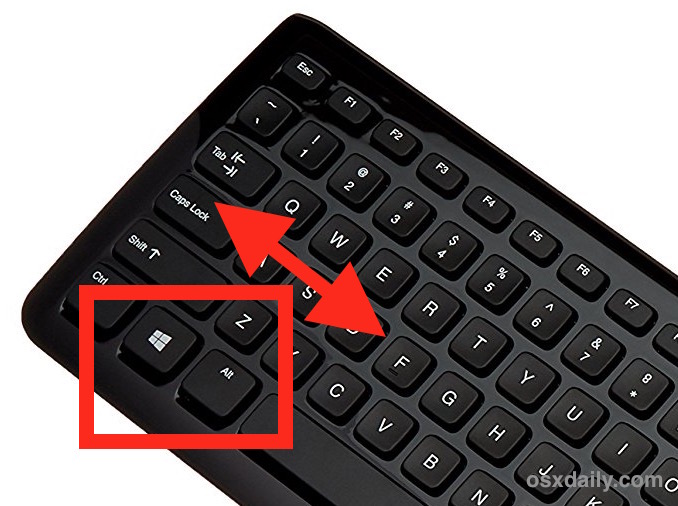One of my neighbours is an old dear who's partially-sighted.
She's got a Mac Mini which, for some reason, has a teensy black compact keyboard.... that she can't see properly.
I had a quick look around the internet and I was quite surprised there aren't a lot of choices for keyboards for people with poor vision.
There are a couple of generic USB keyboards for the visually impaired available, though.
Trouble is, they all appear to be "Windows" keyboards, which is to say they've got a "Windows key" either side of the space bar.
I know nothing about Mac's, other than that the hardware is usually pretty nice but the OS is utter garbage.
So, two specific questions:-
1) Will the "Windows Key" on a keyboard operate as the "Function Key" (the one with the squiggly symbol on it) on a Mac?
2) Does a Mac keyboard have any other functionality that WON'T be present on a standard Windows compatible keyboard?
Beyond that, is there anything else I should be thinking about before attempting to connect a Windows-compatible keyboard to a Mac Mini?
For reference, this is the sort of thing I'm thinking of buying for her: https://www.posturite.co.uk/accurat...G0K6JYDEGvBTbT7EmBs-DzCHzHDppKY0aAm7mEALw_wcB
She's got a Mac Mini which, for some reason, has a teensy black compact keyboard.... that she can't see properly.
I had a quick look around the internet and I was quite surprised there aren't a lot of choices for keyboards for people with poor vision.
There are a couple of generic USB keyboards for the visually impaired available, though.
Trouble is, they all appear to be "Windows" keyboards, which is to say they've got a "Windows key" either side of the space bar.
I know nothing about Mac's, other than that the hardware is usually pretty nice but the OS is utter garbage.
So, two specific questions:-
1) Will the "Windows Key" on a keyboard operate as the "Function Key" (the one with the squiggly symbol on it) on a Mac?
2) Does a Mac keyboard have any other functionality that WON'T be present on a standard Windows compatible keyboard?
Beyond that, is there anything else I should be thinking about before attempting to connect a Windows-compatible keyboard to a Mac Mini?
For reference, this is the sort of thing I'm thinking of buying for her: https://www.posturite.co.uk/accurat...G0K6JYDEGvBTbT7EmBs-DzCHzHDppKY0aAm7mEALw_wcB

